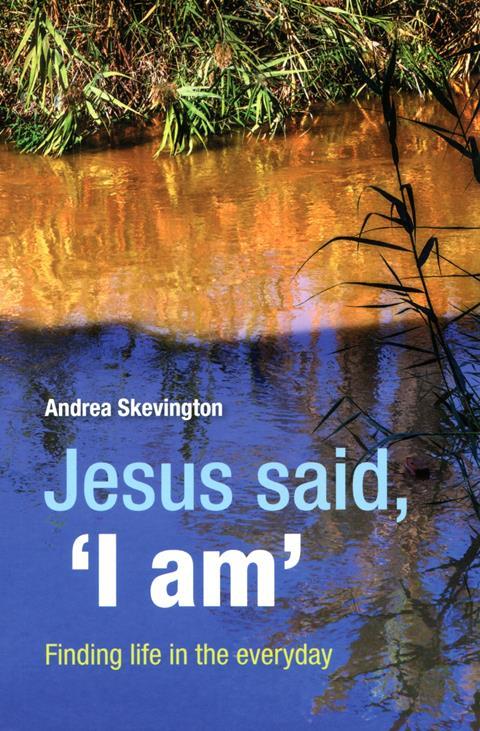
I love having a book that I really want to share with you, writes Amy Boucher Pye.
Some months I flail around, starting a novel and discarding it before moving on to a life story or an exploration of Christian discipleship. But sometimes a wonderful book comes along that I can highlight unreservedly, such as Andrea Skevington’s Jesus said, ‘I am’.
In it she delves into the “I am” sayings of Jesus according to John’s Gospel. In the Greek Jesus says ego eimi 24 times, seven of which have become the “I am” sayings. Andrea explores these (from “I am the bread of life” to “I am the good shepherd” to “I am the true vine”) and also the interesting story of the woman at the well.
I love how she splits her chapters into halves. First she digs into the particular story, unpacking the context of what Jesus experienced. The second half moves to reflection and response, including searching questions for individual pondering or group discussion. She also suggests various creative responses, such as writing, photography, lectio divina, and other exercises.
To give you a flavour, let’s look at the story of the woman at the well (John 4).
Andrea sets the story in its context – that of conflict, not only between the Jews and the Samaritans, but also between Jesus and the Pharisees. Jesus stops at the well that Jacob gave to Joseph, which reminds the reader of the long history of God’s people. Here Jesus acts as a peacemaker in the midst of conflict. He speaks to one ostracised by society – a woman who has had many husbands.
We might judge this woman, but as Andrea observes, in that day, men easily acquired divorces and early death was common.
Jesus humbly asks the woman for a drink. He recognises her as made in the image of God as he cuts through her layers of shame and hiding. Seeing her for who she is, he sets her free. She in turn leaves behind the water jug and goes forth joyfully to share the good news with those who were shaming her.
Perhaps that jug, Andrea observes, symbolises the old life left behind.
After exploring the story (with more depth than I’ve conveyed here), Andrea leads us into some questions, including, “Are there people you would be reluctant to talk to and drink with? If so, why?” I particularly like her creative response of choosing a striking phrase from the Bible story; hers is “the well is deep”. We sit with that phrase, playing with it through poetry or prose, writing a story or jotting down some thoughts about it.
If you’re looking for a book to deepen your faith and love for Jesus, give this one a try. You’ll be enriched and encouraged.





























